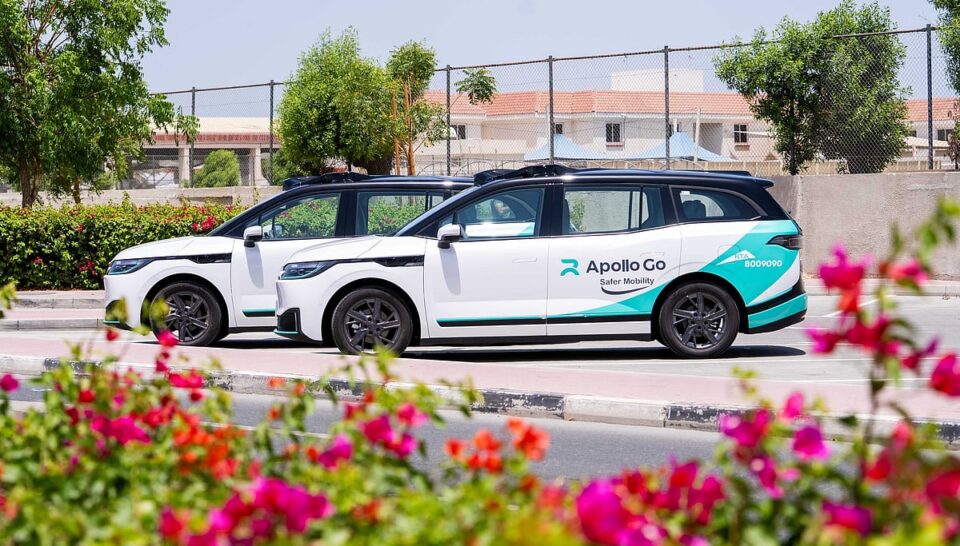Dubai is preparing to launch Baidu’s autonomous ride-hailing service, Apollo Go, by the year 2026.
To begin with, the Roads and Transport Authority (RTA) signed a Memorandum of Understanding (MoU) with Baidu. This agreement will help deploy driverless taxis across the city on a large scale.
As a result, the initiative supports Dubai’s vision of becoming a global leader in autonomous mobility. Apollo Go will use its latest RT6 vehicles, designed specifically for autonomous ride-hailing.
Each car comes equipped with 40 sensors and detectors for advanced automation and maximum safety. Furthermore, RTA has been testing autonomous vehicles since 2016 to prepare for this transition.
Mattar Al Tayer, Director General and Chairman of the RTA Board, confirmed the success of these ongoing trials. According to him, autonomous transport is no longer just a future concept—it is now a practical reality.
Moreover, Dubai plans to convert 25% of all city trips into autonomous journeys by 2030. “RTA is dedicated to testing various self-driving vehicles, including air taxis and marine transport,” Al Tayer stated.
In addition, the RTA recently partnered with Uber and China’s WeRide to launch autonomous taxis on the Uber app.
Similarly, Dubai Taxi Company will also introduce its own driverless taxi fleet starting next year. Meanwhile, Abu Dhabi has already launched commercial driverless taxis through Uber and WeRide.
Currently, people can travel for free in self-driving taxis between Saadiyat Island, Yas Island, and Zayed International Airport. These vehicles operate at Level 4 autonomy within restricted zones but still include a safety operator during trials.
Ahmed Hashim Bahrozyan, CEO of RTA’s Public Transport Agency, shared the benefits of this technology. He said autonomous vehicles offer independence to those who can’t drive, including children and the elderly.
Additionally, they help improve road safety and reduce travel time.
In conclusion, Baidu’s Apollo Go will play a key role in shaping the future of transport in Dubai.

